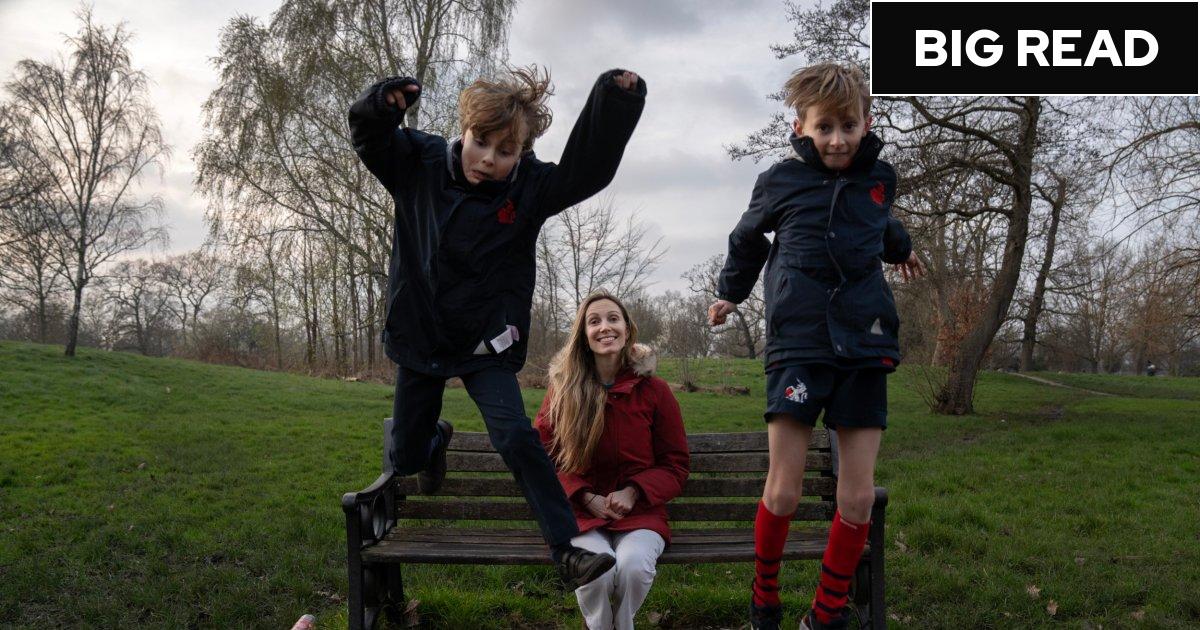He is likely harmless, but he has illustrated a point Russell made during our discussion: certain aspects of Scandinavian parenting may not resonate in Britain due to differing levels of societal trust. This observation is valid, considering that Nordic countries such as Norway, Sweden, Denmark, Iceland, and Finland are consistently ranked among the top 25 safest countries globally, with Iceland leading the pack and Denmark following closely behind, while the UK holds the 37th spot in the Global Peace Index.
However, as I delve deeper into exploring Viking parenting techniques, I find myself contemplating the idea of embracing more calculated risks in raising my children. As Blair suggests, when we analyze the data, the perceived danger often outweighs the actual risk. He emphasizes the importance of preparing children to become independent by questioning whether our protective instincts stem from genuine concern or our own anxieties.
My friend Jo, whose 10-year-old son independently navigates his way to and from school in a somewhat questionable area of London, advocates for placing trust in the community as a positive practice. This approach has not only heightened her awareness of the local environment but also fostered a sense of community engagement. She acknowledges her concerns about road safety and potential risks like theft but firmly believes in the inherent decency of people around them.
On a Friday morning, I decide to allow my older children to walk back from school, albeit with the condition of meeting me halfway—a trial run of sorts. Initially excited, they soon display a hint of apprehension. They inquire about the necessity of having a phone for emergencies, to which I respond that it’s not needed yet. They are familiar with my contact number, and in case of any trouble, they can seek help from a passing adult to reach me.
While I embrace various aspects of Nordic parenting, the introduction of smartphones is a territory I am not ready to explore. The idyllic vision of Viking parenting falters when it comes to digital screens, as studies indicate that smartphones can negatively impact children’s self-esteem and confidence. In Denmark, a significant number of nine-year-olds own smartphones, and in a school near Russell, six-year-olds engage in a “game day” every Wednesday, where electronic devices are encouraged for prolonged use.
As we head towards the designated meeting point, my youngest child expresses concerns about the safety of their siblings. These worries resonate with me too, but as the older children approach us confidently, exuding a newfound sense of independence, my fears dissipate. Witnessing their self-assured demeanor, I am overcome with emotion. They recount their experience nonchalantly, yet their demeanor reflects a sense of accomplishment—they stand taller and exhibit heightened kindness towards their younger siblings that afternoon. In Scandinavia, teenagers are not stigmatized like in some cultures, possibly due to the lack of significant conflicts to rebel against.
On our way back home, I feel a sense of liberation, akin to having a bandage swiftly removed. The anticipated moment of separation that I dreaded has transformed into a gateway to newfound possibilities. When the children inquire about repeating this experience the following Friday, I affirm that they can indeed do so.
In the interim, I will focus on cultivating my “sisu,” a Finnish term embodying resilience and determination.

